Should I Crate Train My Dog?
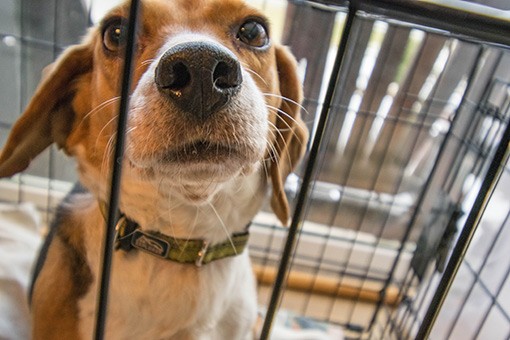
Intro
This post is intended to explain why I believe crate training is important, if you are looking for strategies on how to crate train your dog, I will need to address this separately, when I do I’ll link it HERE.
If crate training my dog is going to be such a hassle, is it really worth the time, conflict, and disruption to my life to be bothered?
In a word; yes.
Like so many things in dog training, there is no unifying answer to be found among trainers when it comes to crate training. Any typical dog owner confronted with the issue will inevitably be forced to make a decision that’s based on a lot of conflicting information. So, as this is one of the more common questions I get asked, I thought it might be helpful to address the topic openly.
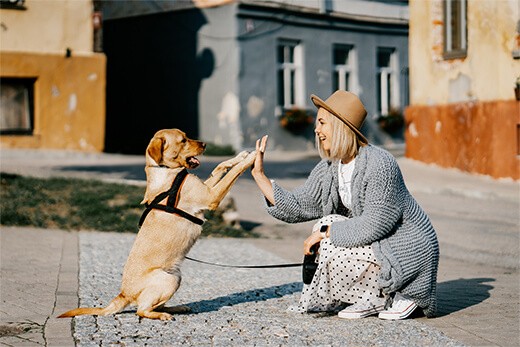
Safety
The first reason to crate train your dog is the necessity to keep them safe.
If you had to leave a baby unsupervised, you would confine them. That’s not a question, it’s common sense. In fact, if you fail to appropriately confine children under your care it’s considered negligence, and can carry serious consequences, either from society or reality. In my experience, the primary difference between confining babies and dogs is more one of perception than ethics.
Simply put, when it comes to babies we use cribs, strollers, and booster seats; but when confining dogs, we use crates, cages, and kennels. It should be obvious that we don’t use these tools because we enjoy seeing our dogs through metal bars, we do it because the weapons and abilities available to a puppy are much more powerful than those of a human baby. Therefore, by necessity, the tools we use to confine them need to be equally robust. For example, if your baby was easily able to chew through the netting on their playpen, it wouldn’t be made out of nylon; or if your baby could easily climb out of their crib, you’d make it more secure; dogs can do these things and much more, so our devices must take that into account. No matter how we approach crate training, most dogs are going to experience at least some stress, but in order to responsibly confine them a crate is still the best solution for most families.
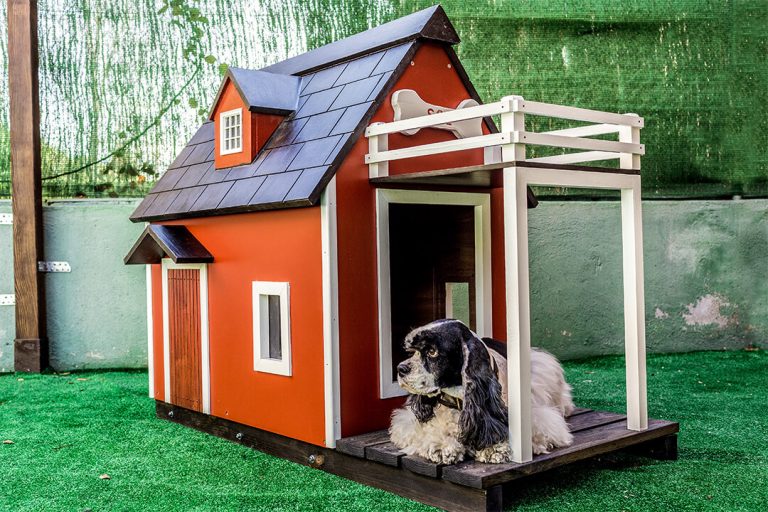
Independence
Secondly, as dog owners, we are responsible for teaching our dogs to be stable and independent beings.
This is another thing that seems obvious when discussing people. If you had a child who screamed and thrashed and worked themselves into a fit every time you left their side, and then cried and climbed all over you when you got back… you could manage it for a while, you may even find it cute in the beginning, but before long it’s going to become annoying, then concerning, and at some point you would be taking that child to a professional because your kid is clearly messed up and you need help.
In my experience, learning to be comfortable with spending time alone is crucial to a dog’s development, and is by far the most undertrained skill in dogs today (especially now, with our post-COVID isolation culture), and the simplest, most practical, and economical way to safely isolation train your dog is with crate training.
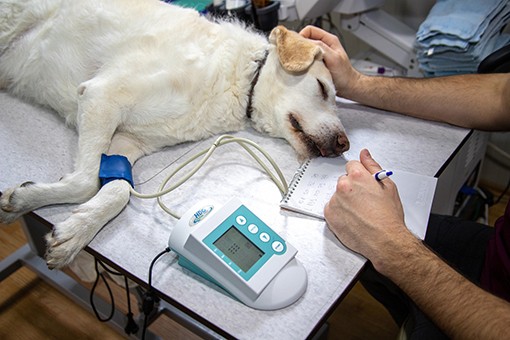
Necessity
However, setting all that aside, my final reason for crate training all the dogs I work with is that it’s not actually optional.
As our dogs’ lives progress, they play, train, and grow old with us, until the inevitable day comes when they need to go to the vet. We’re not talking about a check-up or a booster shot, this visit is because something awful has happened, something unexpected, which may end up changing your dog’s life forever.
It’s a horrible reality, but it’s one that the majority of dog owners will someday have to face. Most dogs will eventually become sick, injured, or just plain old enough that they need to go stay with their veterinarian for a few days. During this time they will be crated. If you’ve taken every precaution to properly prepare your dog they are still about to have a very unpleasant experience over the next few days, but for dogs who haven’t been taught to be calm and relax in a crate… this can escalate to levels of panic and fear which can cause very real trauma.
It may be comforting to imagine that avoiding crate training allows our dogs to live wild and free, but the reality is we’re just neglecting our responsibilities as dog owners, and they are the ones who end up paying the price.
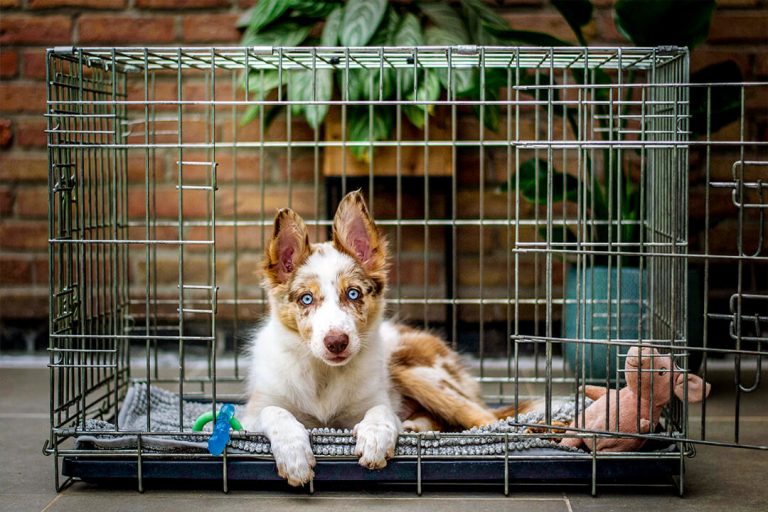
Final Thoughts
For these reasons, (and more besides, but this post is already way too long), I have made crate training a mandatory part of my training program. It’s something I discuss in detail with nearly every client, and admittedly the learning process is not an entirely fun experience for many families. Some dogs will cry, or make a fuss, or look at you with sad eyes when you walk past… But you know what else wasn’t very fun? School. School isn’t fun, school is hard, stressful, and even depressing for many students, but we still send our kids. We send them because we know life is stressful, and they need to learn to deal with that stress in order to become functioning adults. As much as we may not like it the same is true for our dogs, and if we’re not preparing them to deal with the realities of their lives we’re really just avoiding our responsibilities as pet owners.
So my best suggestion is to think of crate training as school for dogs. We don’t send them because it’s fun, we do so because it’s good for them and it’s our responsibility to prepare them for life’s challenges.
Anyway, I hope this helps some people who may be stuck on the fence about this. I’ll put a post regarding crate rotations, and I’ll link it HERE when I do.
Cheers!
Mike